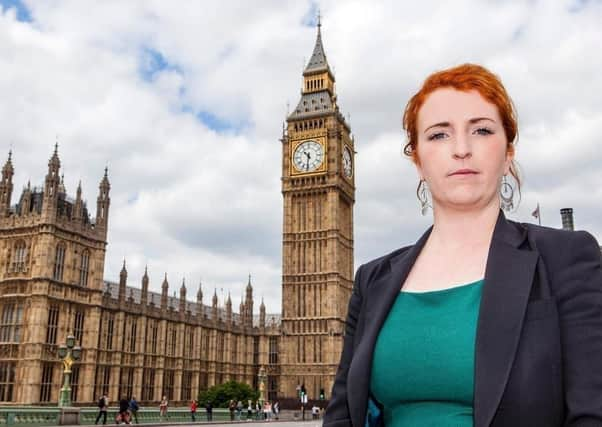Tory Ministers must act to stave off jobs crisis — Shadow Secretary of State for Northern Ireland


Visiting communities across Northern Ireland, I know so many have made huge sacrifices in the effort to bring this virus under control, and keep all of us safe.
But we also know this crisis is far from over. In the coming months, the priority must be to protect the jobs and livelihoods of those hit hard by the ongoing economic consequences of Coronavirus.
Advertisement
Hide AdAdvertisement
Hide AdFor families and communities in Northern Ireland those economic challenges are multiplying. Take aerospace, one of Northern Ireland’s largest employers. When people did the right thing and followed public health guidelines, the airline industry suffered, orders dried up and income fell away. Since then the industry has been rocked by mass redundancies announced with grim regularity. Bombardier, Thompson Aero, and Collins have all announced job losses totalling more than 2,000, a staggering blow for a sector that thousands here depend on.
And as the News Letter shows today, Northern Ireland is more reliant than almost any part of the UK on the schemes the Government have used to protect jobs since the crisis hit; in food, retail and manufacturing, NI has some of the highest take-up rates for the furlough scheme of any region in the UK. For the self-employment support scheme, Northern Ireland has the highest of any.
By the end of October, both of these schemes – so vital for Northern Irish businesses and workers – will have vanished altogether. But the reason why those support schemes were needed in the first place won’t have. In their place, there will be a job retention bonus, which the Chancellor has been told by his own government department, HMRC, may not save jobs or deliver value for money.
It’s for these reasons that the most senior civil servant at the Department for Economy has sounded the warning siren: ‘if you turn off the tap’ he told a Stormont Committee last week ‘a large cohort will go straight to unemployment’.
Advertisement
Hide AdAdvertisement
Hide AdNorthern Ireland knows all too well the scars of mass unemployment, the lasting damaging it does to families, to livelihoods, to communities, to prosperity and to peace. That’s why we are looking at warnings like this with real fear, and wonder whether history is about to repeat itself.
Tory Ministers are acting like this is inevitable and that they are prepared to bear the consequences, but it is far from a foregone conclusion, and there is still time for them to change tack. Labour has called repeatedly for government support to be targeted to those sectors that have been hardest hit. Right now, it is being withdrawn from all businesses alike, whatever their sector or circumstance. If you’re unable to produce and trade properly, if you’re slowly recovering but still struggling because you did the right thing: too bad.
We need a response from the Government that matches the scale of the crisis. Flexibility in the furlough scheme must be a priority for the Chancellor this autumn, as politicians in the Executive have demanded, to protect workers in essential industries that have been hit hardest.
Some will argue, wrongly, that Labour is asking for indefinite support for unviable businesses. That’s not true. We want support to be targeted at those that need it most in the middle of a crisis that has not gone away, and for ministers to recognise that it is inherently unfair to treat all sectors alike.
Advertisement
Hide AdAdvertisement
Hide AdIt’s not just morally wrong, but foolish, to turn a blind eye to the impact of the Government’s blanket approach on places like Northern Ireland. Livelihoods will be lost, and we will all pay the price if we damage strategically significant industries like aerospace - which reaps huge economic benefits for our country. This is not a risk Ministers should be prepared to take, Northern Ireland must not be abandoned. It’s time for the UK government to take stock, start listening, and change course.